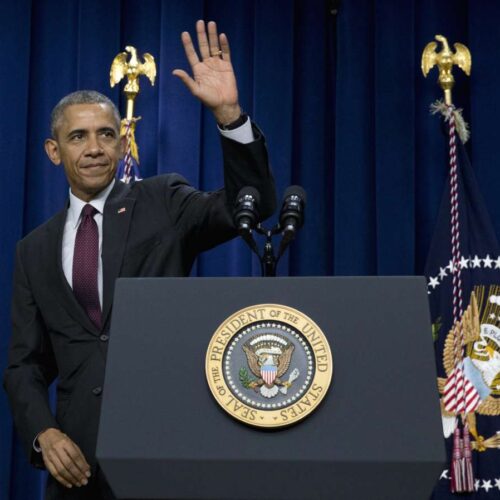Introduction
President Obama’s final year in office isn’t likely to be marked by major new U.S. foreign policy initiatives, if a list of policy priorities offered recently by White House chief of staff Denis McDonough winds up holding sway.
When McDonough was asked on Jan. 29 at a meeting at The Washington Post of past Pulitzer Prize winners what the eighth year of Obama’s term is going to look like, he gave a short list of priorities: criminal justice reform, passage of the Trans-Pacific Partnership trade deal, and climate-related environmental regulations.
Notably, McDonough didn’t hint at anything new on nuclear arms control (an issue at the center of Obama’s 2009 Nobel Prize), any new diplomatic bridges (or pressures, for that matter) involving Russia or China, any new initiatives related to peace or regional stability in the Middle East, or any structural shifts in federal defense spending.
McDonough reiterated that Obama has told his staff he’s inclined this year to say “why not?” more than “why?” He also said “we’re open for business with Congress” and promised that if the Republican majorities offer nothing, Obama will pull any levers he can to accomplish his goals. But he addressed the humanitarian and political mess in Syria only after Washington Post columnist Eugene Robinson asked him about it, and suggested only that the administration plans to stay the course there. By that, he meant it will continue to press for a political settlement and destruction of the self-styled Islamic State.
McDonough didn’t bite when Robinson asked if the president was disappointed he hasn’t been able to build a better bridge to the Muslim world. He said Obama has “set out challenges” to Muslim nations by offering to befriend those who want to partner with America, while at the same time defending U.S. interests. The conversation didn’t get deeper on this point.
Moments earlier at the event, hosted in the auditorium of the Post’s gleaming new Washington headquarters, journalist Bob Woodward – appearing on a panel assessing Obama’s potential legacy – praised the president for achieving a diplomatic deal with Iran that at least postpones for fifteen years that country’s stockpiling of a significant quantity of nuclear explosive materials.
Those privy to nuclear war plans, Woodward said, know how frightening they are. He said “anything to reduce the likelihood of that nightmare is to be applauded.” But he also complained that Obama had shown too much restraint on foreign policy dangers, which he said “doesn’t work in a world where you have Russia and ISIS.”
Read more in National Security
Up in Arms
Belgium orders immediate security upgrade at its nuclear sites
After long relying on unarmed guards, Belgium decides to send soldiers with weapons to safeguard its reactors from a terrorist attack
Up in Arms
Workers threw out U.S. nuclear secrets with common rubbish for 20 years
A persistent problem in nuclear weapons work crops up again


Join the conversation
Show Comments